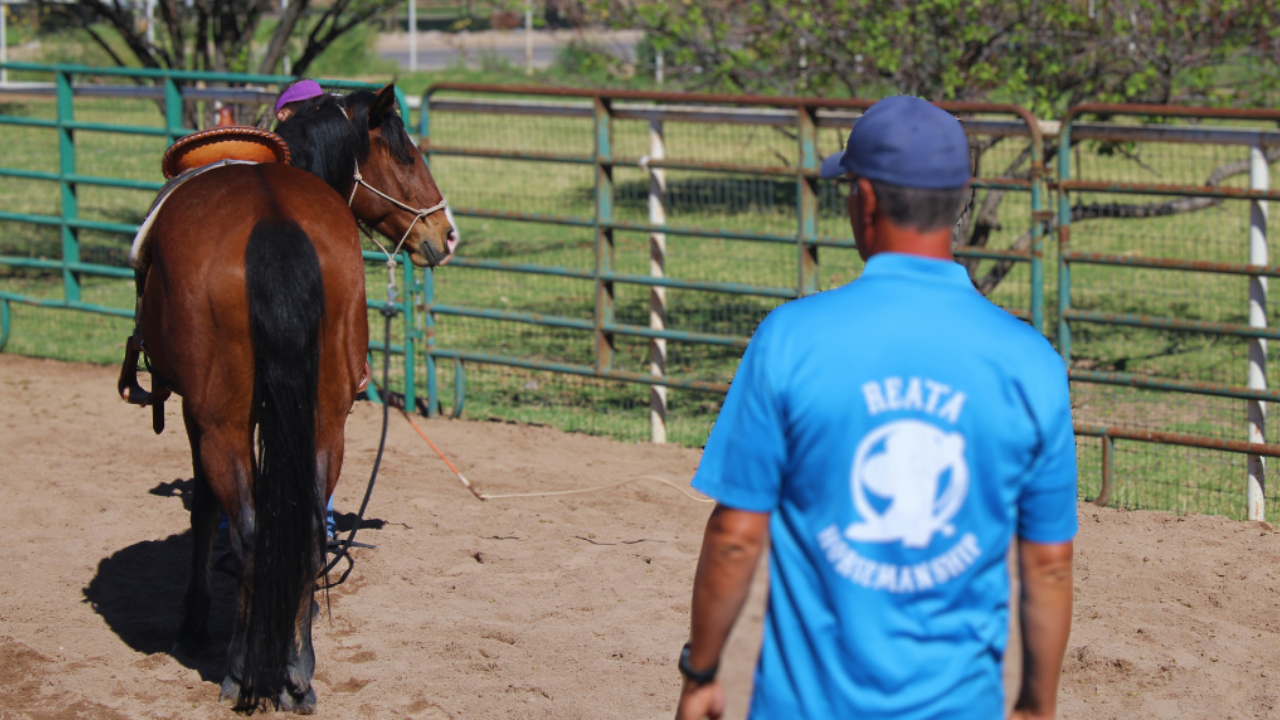Q&A: Is my Horse Lazy, or just Clumsy with her Feet?
Sep 19, 2023
Q: My Horse isn’t necessarily bred to be athletic and catty, but she definitely lacks in the energy department when asking her to move her feet both on the ground and under saddle. To the point that I’m worried she’s going to trip or hurt herself for not paying attention to where her feet are. Any advice for getting more energy from her?
A: A horse that is “dull” or “cold-blooded” or “lacks in the energy department” as you describe, to the point that you are afraid she will trip or hurt herself for not paying attention to where her feet are can be a challenging issue. Most accidents I’ve had are from horses slipping or tripping and falling, so this question is one dear to my heart. While I appreciate your concern for your horse that she might hurt herself, usually when a horse trips, you are in greater danger than her. Falling with your horse can create countless opportunities for injury or worse to yourself and your horse, so figuring out the cause and working on the issue is vital.
First and foremost, you want to ask the question, “Is my horse lazy or clumsy?” There is a distinct difference, and horses that are clumsy must be ridden with care and consideration for your safety. Older horses can become arthritic and lose eyesight, two conditions that contribute to being “clumsy” and likely to trip and fall. While even these horses can be “trained” to improve their accurate stepping, one must carefully consider the risks and benefits of trying to “train” the clumsiness out of them. At some point, the risk to the owner/trainer is too high, and horses should be retired from riding.
Another possible reason for tripping could be a neurological condition, such as EPM (Equine Protozoal Myeloencephalitis), which causes a horse to lose muscle control due to central nervous system damage from a parasite. It is estimated that more than 50% of horses in the U.S. have been exposed to the parasite, but only some of them develop symptoms. Horses born in the western U.S. and that have never gone east have less chance of contracting this parasite, which comes from the opossum. Check with your veterinarian if you suspect this disease or to rule it out.
Young horses or horses inexperienced to outside a stall, ie. lived in a stall all or most of their life, can demonstrate difficulty navigating unlevel ground or objects on the ground. These horses, as well as those that tend to trip when they get lazy, bored, and/or distracted, should be taken through all the fundamental desensitizing and sensitizing ground work and riding of Reata Horsemanship on a well-groomed and level surface to establish a baseline of function and safety.
Your horse should be able and willing to walk, trot, and canter during round penning and on a lead rope/lunge line, and able to stop and change directions without tripping generally. Once you’ve established this capacity, then adding poles or other objects such as tires and logs of all sizes with your ground work, and eventually during riding, can teach your horse to navigate those objects by picking up her feet and carefully placing them as she steps. If my horse tends to get lazy and trip for not “paying attention”, I will work on different sensitizing exercises on the trail, which brings her focus back to me and helps her pay attention. I consider the trot to be the educational gait, which allows me to ask for more intensity in a balanced and higher energy state while we ride in the arena or on the trail.
Remember that with any problem a horse presents, I always (yes, I mean ALWAYS) start on the ground to fix it. The better you and your horse get with ground work, the more confident you will be in her ability to carry you safely. This includes addressing issues of tripping. Bottom line is that tripping due to being lazy can be addressed and improved, but try to understand why the tripping is happening by ruling out age-related and medical-related factors first, and then practicing on the ground and then in the saddle to increase your horse’s skill and safety.
For more in-depth instruction on Reata Horsemanship groundwork and riding exercises, join us as a member today! You will be able to access our entire video library that includes our virtual clinic, Desensitizing Secrets Master Class, problem horses, and more!

